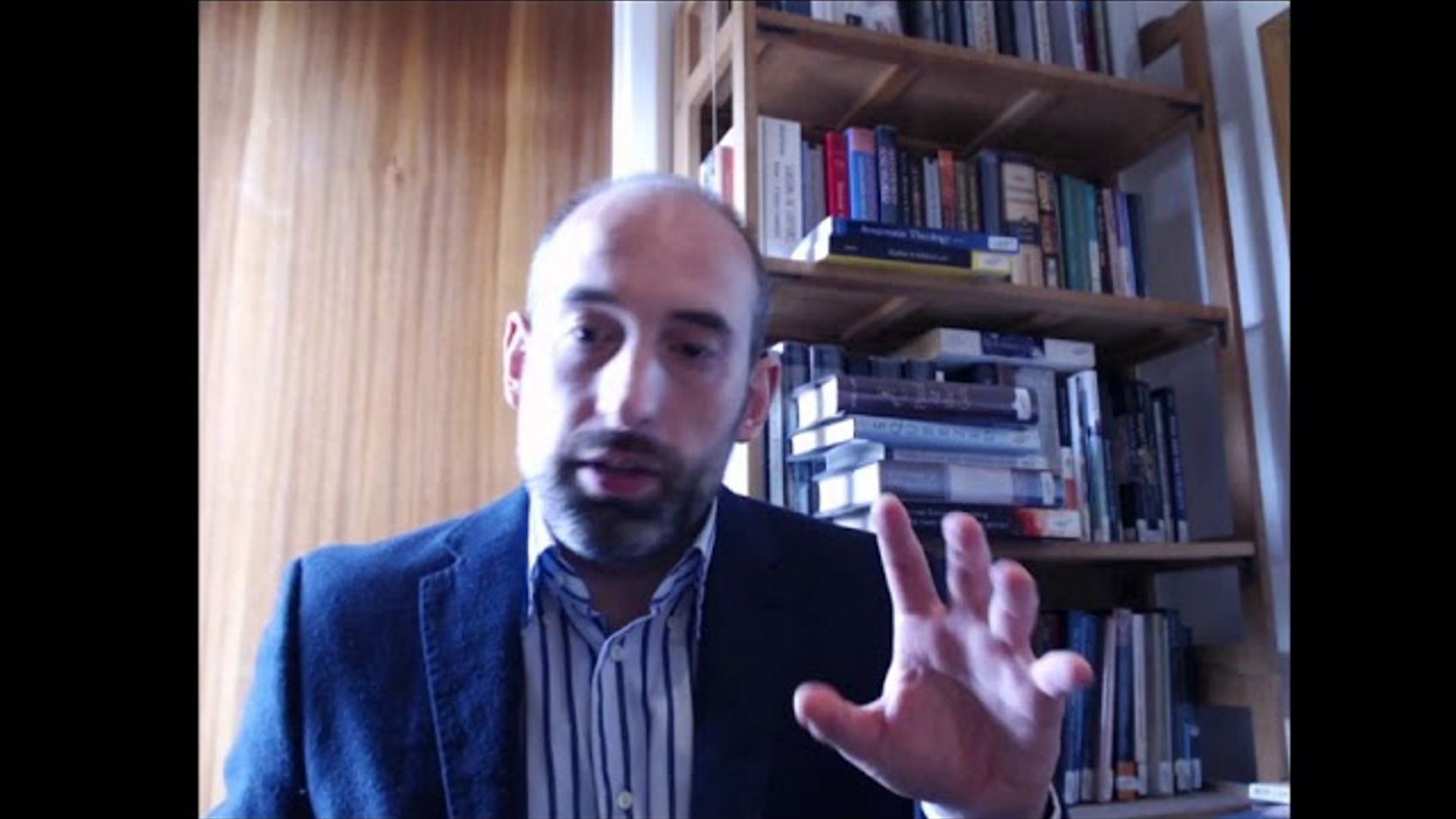Q&A#20 Why Did the Gadarene Villagers Ask Jesus to Leave?
July 29, 2018

Alastair Roberts
Today's question: "Why did the inhabitants of the Gadarene village ask Jesus to leave after he healed the demoniac?"
If you have any questions, you can leave them on my Curious Cat account: https://curiouscat.me/zugzwanged.
If you have enjoyed these videos, please consider supporting me on Patreon: https://www.patreon.com/zugzwanged.
My new Soundcloud account is here: https://soundcloud.com/alastairadversaria. You can also listen to the audio of these episodes on iTunes: https://itunes.apple.com/gb/podcast/alastairs-adversaria/id1416351035?mt=2#.
More From Alastair Roberts

Q&A#21 What to Make of the Curious Numbers of Acts?
Alastair Roberts
July 30, 2018
Today's question: "What is the significance of the book of Acts recording the number of people being saved (3000 in Acts 2, 5000 in Acts 4)?"
If you

Q&A#22 Why Does Figural Preaching Matter?
Alastair Roberts
July 31, 2018
Today's question: "I would like to ask a two-part question: (a) could you give a defense from the Scripture for figural preaching and typological read

Q&A#23 Why Doesn't Paul Say More About Evangelism?
Alastair Roberts
August 1, 2018
Today's question: "Given that Paul is the most prominent evangelist / church planter in the Bible, why are exhortations to evangelize seemingly so rar

Q&A#19 Tips for Reading Your Bible Better
Alastair Roberts
July 28, 2018
Today's questions: "How do you go about noticing intertextual links? Is is mostly intuitive based on large exposure to the Bible? Do you do particular

Q&A#18 What is Paul's Allegory of Sarah and Hagar About?
Alastair Roberts
July 27, 2018
Today's question: "Why does Paul say that Sarah and Hagar represent two covenants in Galatians 4:21-31? Where can we see this reality in the Old Testa

Q&A#17 What Does Jesus Mean When He Speaks About Being Born Again?
Alastair Roberts
July 26, 2018
My new Soundcloud account is here: https://soundcloud.com/alastairadversaria.
Today's question: "What's your reading of the Nicodemus story in John 3
More on OpenTheo

How Do I Determine Which Topics at Work Are Worth Commenting On?
#STRask
January 5, 2026
Questions about how to determine which topics at work are worth commenting on, and a good way to respond when you’re in a group Bible study and hear e

Can You Provide Verifiable, Non-Religious Evidence That a Supernatural Jesus Existed?
#STRask
November 10, 2025
Question about providing verifiable, non-religious evidence that a supernatural Jesus existed.
* I am an atheist and militantly anti-god-belief. Ho

How Would You Convince Someone That Evil Exists?
#STRask
November 17, 2025
Questions about how to convince someone that evil exists, whether Charlie Kirk’s murder was part of God’s plan, whether that would mean the murderer d

After the Crucifixion, was Jesus Resurrected or Rescued? Licona vs. Ally
Risen Jesus
October 8, 2025
This episode is a 2016 debate held at the University of Tennessee – Chattanooga between Dr. Michael Licona and Dr. Shabir Ally, president of the Islam

Protestants and Catholics: What’s the Difference? With Chad Van Dixhoorn, Blair Smith, and Mark McDowell
Life and Books and Everything
November 26, 2025
How should Protestants think about the Catholic Mass? About the Eucharist? About the history and development of the papacy? In this panel discussion,

The Resurrection Standoff: Licona vs. Ehrman on the Unbelievable Podcast
Risen Jesus
October 22, 2025
This episode is taken from the Unbelievable podcast with Justin Brierly in 2011 when Dr. Bart Ehrman and Dr. Michael Licona address the question: Is t

How Do We Advocate for Christian Policy Without Making the Government Interfere in Every Area of Life?
#STRask
November 20, 2025
Questions about how to advocate for Christian policy without making the government interfere in every area of life, and the differences between the mo

Why Are So Many Christians Condemning LGB People Just Because of How They Love?
#STRask
January 15, 2026
Questions about Christians condemning LGB people just because of how they love, how God can expect someone to be celibate when others are free to marr

When I Can’t Stop Thinking About Something, Is That God Speaking?
#STRask
December 1, 2025
Questions about whether having a recurring thought is an indication God is speaking to you, what to say to someone who says they sinned because “God t

Does Open-Mindedness Require Studying Other Religions Before Becoming a Christian?
#STRask
February 9, 2026
Questions about the claim that if Christians really want to be open-minded, they need to read and study other religions before committing to Christian

Are Demon Possessions and Exorcisms in the New Testament Literal?
#STRask
December 11, 2025
Questions about whether references to demon possessions and exorcisms in the New Testament are literal, how to talk to young children about ghosts, an

What About Those Who Never Heard the Name of Jesus?
#STRask
December 22, 2025
Questions about what will happen to those who never heard of Jesus or were brought up in a different faith, whether there’s biblical warrant to think

Why Should We Pray If God Already Knows What’s Going to Happen?
#STRask
January 29, 2026
Questions about why we should pray if God already knows what’s going to happen, how the effectiveness of prayer is measured, and whether or not things

The Making of the American Mind with Matthew Spalding
Life and Books and Everything
February 2, 2026
The United States is unique in how much attention it pays to its founding, its founders, and its founding documents. Arguably, the most famous and mos

Is It Possible There’s a Being That’s Greater Than God?
#STRask
February 5, 2026
Questions about whether it’s possible there’s a being that’s greater than God and that’s outside of God’s comprehension and omniscience, and how to ex
